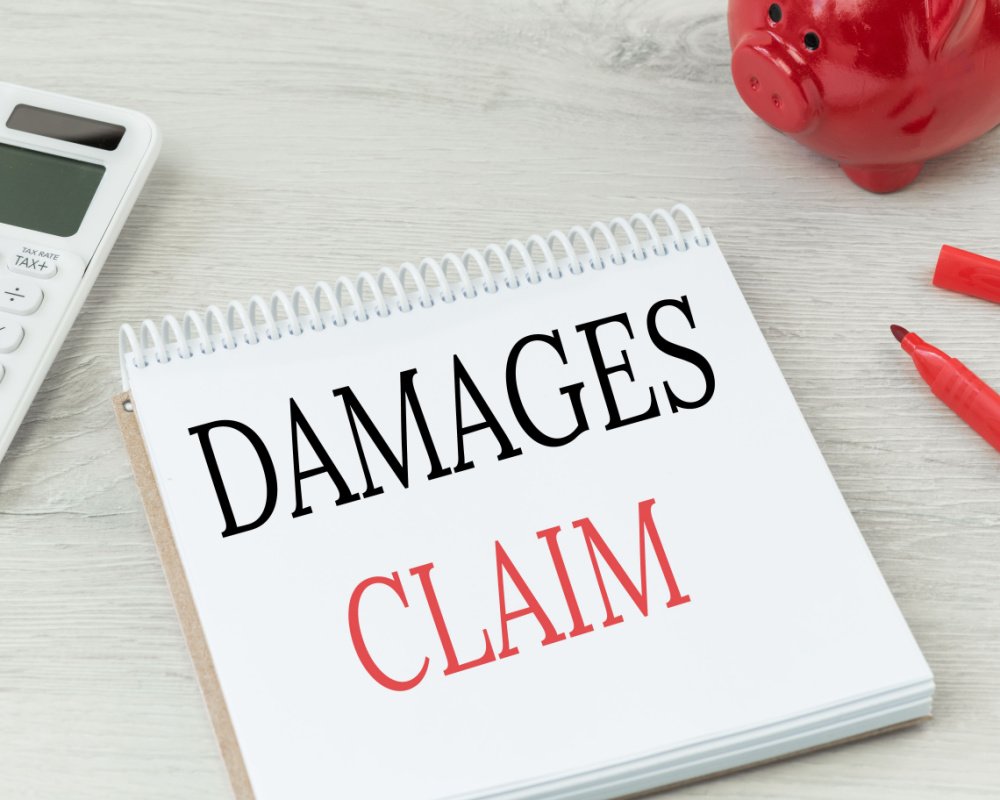Table of Contents
When you find yourself in the unfortunate situation of being injured due to someone else’s negligence, it’s crucial to understand the significance of accurately calculating damages in your injury case.
Whether you’ve been involved in a car crash, suffered a slip and fall, or experienced any other personal injury, knowing how to determine the extent of your losses is vital to ensure fair compensation.
In this guide, we’ll walk you through the key factors involved in calculating damages and help you make informed decisions when seeking a personal injury lawyer for your case.
Types of Damages in a Personal Injury Case
To begin, it’s important to differentiate between the two primary categories of damages in a personal injury case: economic and non-economic damages.
Economic Damages:
Economic damages, also known as special damages, are those that can be quantified in financial terms. These include:
- Medical Expenses: This category covers all current and future medical bills related to your injury, including hospital stays, surgeries, doctor visits, prescription medications, any physical therapy, or prescribed assistive devices such as wheelchairs or crutches.
- Lost Wages: If your injury prevents you from working and earning your regular income, you may be entitled to compensation for lost wages. This includes not only the income you’ve already lost but also potential future earnings if your injury results in a long-term disability or impacts on your ability to work at all in your chosen profession.
- Property Damage: In cases like car accidents, where your property (e.g., your vehicle) is damaged, you can seek compensation for the cost of repairs or replacement.
Non-Economic Damages:
Non-economic damages are subjective, non-monetary losses and are more challenging to quantify because they relate to intangible losses and suffering. These include:
- Pain and Suffering: This category encompasses the physical pain, emotional distress, and mental anguish you’ve endured due to the injury. Calculating pain and suffering damages typically requires the expertise of an experienced personal injury attorney.
- Emotional Distress: Emotional distress can range from anxiety and depression to sleep disturbances and post-traumatic stress disorder (PTSD), all stemming from the incident that caused your injury.
- Loss of Enjoyment of Life: If your personal injury has significantly limited your ability to participate in activities you once enjoyed, you may be entitled to compensation for the loss of the quality of life.
Factors Affecting Damages Calculation
Calculating damages in a personal injury case is not a one-size-fits-all process. Several factors come into play, and each case is unique. Here are some critical considerations that can affect the final amount of compensation you may receive:
- Liability and Negligence:
The degree to which the other party was at fault for your injury can significantly impact your potential recovery. If their negligence is clear-cut, you may have a stronger case and be eligible for higher compensation.
- Medical Documentation:
Thorough and well-documented medical records are essential in determining the extent of your injuries and the associated medical expenses. It’s crucial to seek medical treatment promptly and follow your healthcare provider’s recommendations.
- Expert Testimony:
In complex cases or those involving long-term consequences, expert testimony may be necessary to establish the extent of your damages. Experts can include medical professionals, vocational rehabilitation specialists, or economists who can help quantify your losses.
- Comparative Negligence:
In some jurisdictions, your compensation may be reduced if you are found partially responsible for the accident. Understanding the concept of comparative negligence and its potential impact on your case is crucial.
How to Calculate Economic Damages
Calculating economic damages is relatively straightforward because they are quantifiable expenses and losses. Economic damages are things like medical bills and property damage that occurred directly due to the other party’s negligence. While coming up with a quick summary of the economic damages that occurred may seem easy, it is not. Calculating economic damages accurately requires a great amount of investigation and paperwork.
First you will need to collect all relevant documentation: Gather all medical bills, pharmacy receipts, invoices for medical equipment, and any other documents related to your injury-related expenses. Ensure that you maintain an organized record of these expenses. This documentation will then allow you to calculate the current medical expenses.
Sum up all the medical bills and expenses you have incurred thus far. These records should include hospital bills, diagnostic tests, surgeries, physical therapy, and any and all other medical treatment required due to the injury.
After summing up the current medical expenses you will then need to accurately estimate any future medical expenses. For ongoing treatment or rehabilitation, consult with your healthcare provider to estimate the future costs associated with your injury. Keep in mind that these expenses should be projected over the long term, considering any potential complications or disabilities resulting from your injury.
Finally, you will need to calculate lost wages. To do this, you’ll need to obtain evidence of the income you would have earned had you not been injured. Your attorney may also need to consider factors such as paid time off, sick leave, and any bonuses or commissions you would have received. Make sure that property damage is calculated. If applicable, factor in the cost of repairing or replacing the damaged property, such as your vehicle in the case of a car accident.
How to Calculate Non-Economic Damages
Calculating non-economic damages is more complex than economic damages, as they involve intangible losses that vary from person to person. Here are some steps to help estimate non-economic damages:
Consult with an Attorney
Given the subjective nature of non-economic damages, it’s very important that you consult with an experienced personal injury attorney. Injury lawyers can provide guidance and help calculate an appropriate value for your pain and suffering, any emotional distress suffered, and of course loss of enjoyment of life.
Keep a Journal
Maintaining a journal that documents your daily experiences and the emotional toll that your injury has caused will be a valuable resource. Be sure to note any significant changes in your life due to the injury, such as the inability to participate in hobbies or the impact on personal relationships.
Consider Multipliers
In some cases, attorneys and insurance adjusters use multipliers to calculate non-economic damages. This involves multiplying the total economic damages (medical expenses, bills and lost wages) by a certain factor, typically ranging from 1.5 to 5, depending on the severity of the injuries and other relevant factors.
Calculating Damages with Justice Law Center
As you can likely deduce at this point, calculating damages in a personal injury case is a very complicated and time-consuming process. Doing the calculations incorrectly can be devastating to your chances for adequate compensation.
While there is no issue with using this guide to get a general idea of what kind of compensation you are entitled to, you will always be better off consulting an experienced injury lawyer. Here at Justice Law Center, our team in personal injury lawyers can accurately calculate damages in your injury case so that you will receive the maximum compensation possible.
We offer completely free online consultation if you prefer or can meet you in person at one of our many Nevada offices. If you choose to have JLC represent you, will only take our fees out of the money that we win for you in court.
Call us today!
Josh is writer and paralegal, with over 10 years of experience in family law, personal injury, criminal defense and more.





